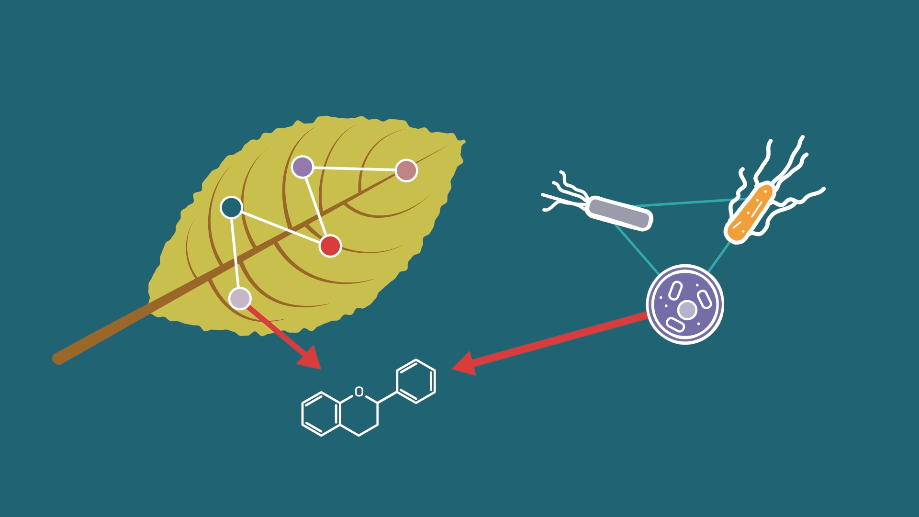Announcing the start of the project.
By using synthetic biology, this new project aims to provide a cost-effective alternative to current flavonoid production technology.
Flavonoids are phytonutrients occurring naturally in plants. There are over 6,000 types of flavonoids, each with its unique set of benefits. Flavonoid-rich foodstuffs include parsley, onions, berries, black tea, green tea, oolong tea, all citrus fruits, bananas, sea-buckthorns, buckwheat, Ginkgo biloba, red wine and dark chocolate.
Flavonoids have incredible health benefits. Depending on the type they can exhibit anti-oxidative, anti-inflammatory, anti-mutagenic and anti-carcinogenic properties. They also support our immune and cardiovascular systems and help to modulate key functions of enzymes in our cells.
Flavonoids are phytonutrients occurring naturally in plants. They are an integral part of the human diet and their wide range of industrial applications includes food & beverage, dietary supplementation, nutraceuticals and cosmetics
Applications for flavonoids are manifold and pertinent to many industries. In the food and beverage industry, they are widely used as natural colouring agents and taste enhancers. They are also used in the pharmaceutical and nutraceutical industries, in animal feed and in the cosmetics and materials industries.
SynBio4Flav’s scientific challenge is to produce flavonoids by breaking down their complex biosynthetic pathways into standardized specific parts, which can then be transferred to engineered microorganisms within Synthetic Microbial Consortia to promote flavonoid assembly through distributed catalysis.
Currently, however, industrial applications are limited by the sheer availability of flavonoids. Market suppliers are constrained by a narrow range of suitable plant sources containing low concentrations of flavonoids. As a result, large amounts of plant biomass are needed to obtain even small amounts of pure flavonoids. SynBio4Flav’s challenge is to break down the complex flavonoid metabolic pathways occurring in plants into smaller, standardized functional units and transfer these to specific microorganisms within a Synthetic Microbial Consortium (SMC). The individual components of the SMC are genetically engineered to deliver optimal outputs for subsequent biosynthetic steps along the distributed catalysis process. This groundbreaking approach is expected to deliver significantly improved yields and cost efficiency.
SynBio4Flav’s groundbreaking approach has great potential beyond the production of flavonoids. The project’s ultimate goal is to deliver a paradigm shift in biotechnological manufacturing of complex natural chemicals.
SynBio4Flav will validate its technology in an industrially relevant environment to reach TRL5 (Technology Readiness Level – 5) in the production of natural and new-to-nature functionalized flavonoids. It will also provide a library of optimized cell systems fit for use in new synthetic biological assemblies.
Post-validation, the SynBio4Flav consortium foresees great potential for its technology beyond the production of flavonoids. Ultimately, it aims to deliver a paradigm shift in biotechnological manufacturing of complex natural chemicals.

